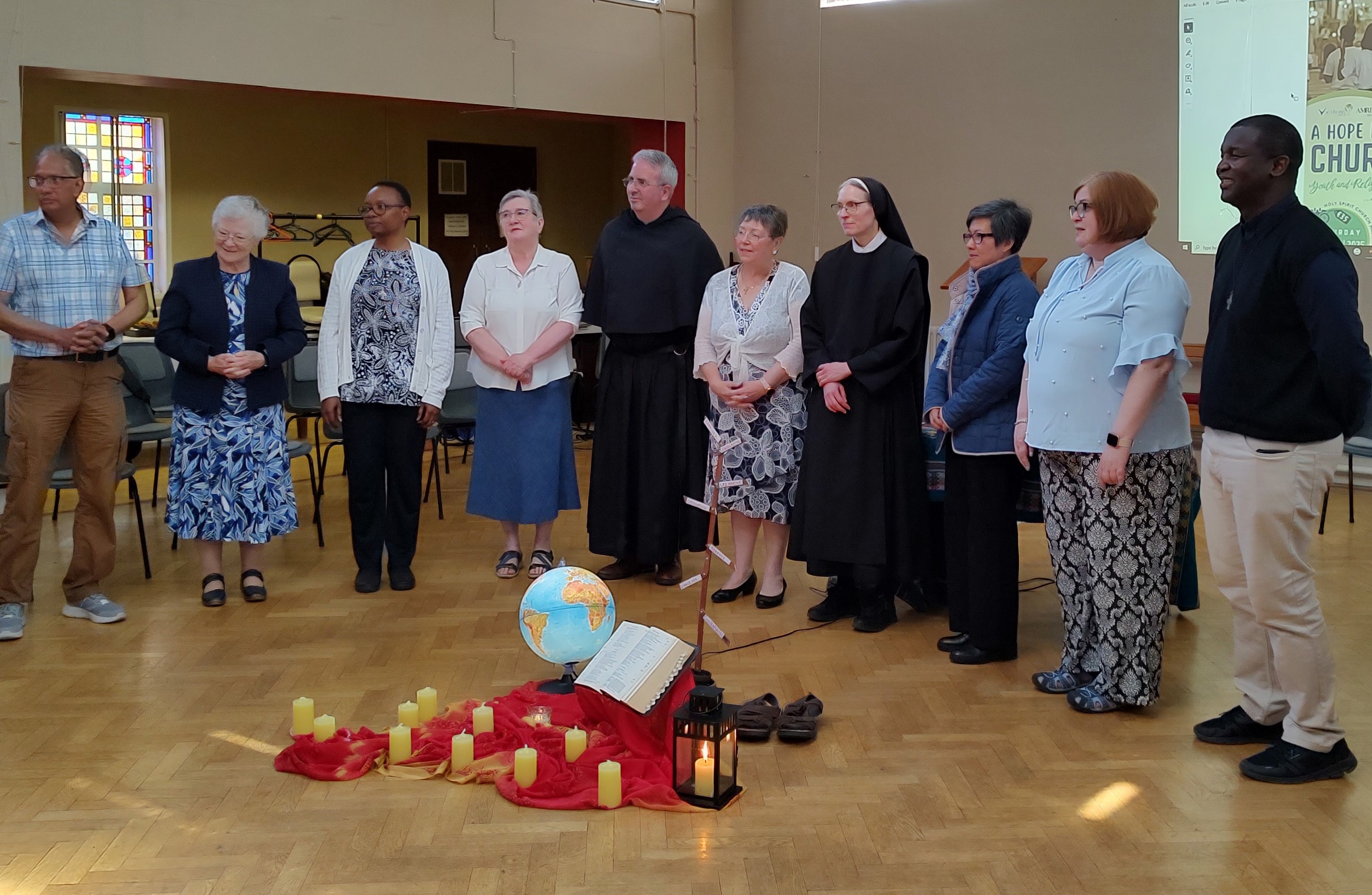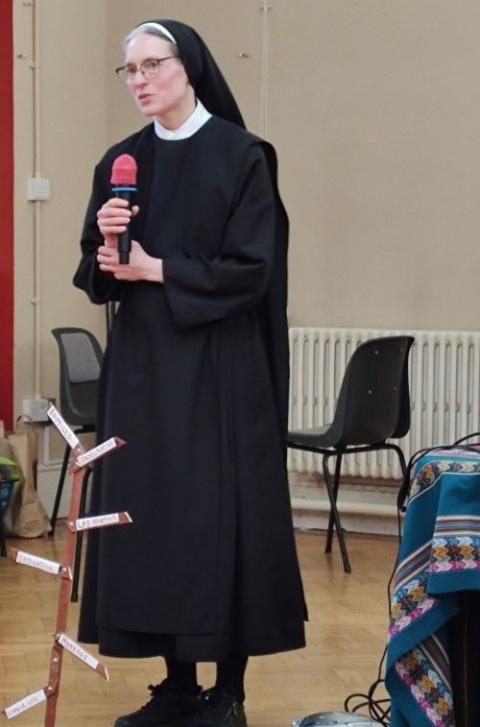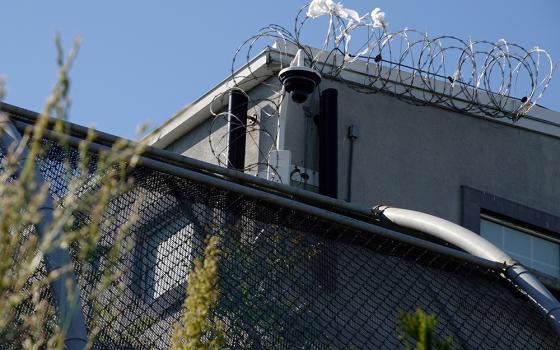
Outgoing and incoming members of the Vocations Ireland executive board are celebrated during the group's annual conference in May, held in Dublin. (Julie A. Ferraro)
On a sunny May Saturday, I was honored to travel from Kylemore Abbey to Dublin, where Vocations Ireland held their annual conference at Holy Spirit Church Hall in Kimmage Manor. With spring well in evidence, it was to be expected that this event conflicted with others scheduled for the same day: first Communions, confirmations and an ordination, just to list the liturgical ones.
Though attendance was limited to about 40 participants, what an international crowd! There were religious from Bangladesh, Pakistan and Africa, and young people from Vietnam, China and elsewhere. They came together to explore "A Hope Filled Church," as the theme declared, with much of that hope stemming from the recent election of Pope Leo XIV.
Augustinian Fr. Colm Mahony, a member of Vocations Ireland executive committee, practically beamed with pride that "Bob" — as he knew the former Cardinal Robert Prevost, who served as the Augustinian general during Mahony's days as a student in Rome — had stepped into the shoes of the Fisherman.

Sr. Jeanne Bott, vocation director for the Benedictine Sisters of the Monastery of the Immaculate Conception at Kylemore Abbey in Ireland, shared her vocation story at the l Vocations Ireland conference in Dublin in May. (Julie A. Ferraro)
Mahony also contributed his ideas about approaching younger generations to encourage vocations to the religious life and priesthood, as did many others in the room. He shared how he had resisted God's call himself, opting to explore other opportunities along his path until he realized joining the Augustinians was where he was meant to be.
A group of young people, active with the Salesians in Maynooth, Ireland, said that thousands of students at the National University of Ireland Maynooth and other schools in that area find relaxation from their studies and purpose in the ministries provided by the Salesians.
A well-received suggestion was that religious communities, with declining numbers and empty rooms in their ministry houses, "open the doors" to give young people — primarily international students studying in the country and needing accommodations — a chance to live with the vowed members. They would share their prayer life and ministries as a way to introduce them to the possibilities of religious life.
Being a presence in the lives of these young people, especially university students, was also identified as key. Inviting them to gather — providing pizza as an enticement was a recurring (and humorous) idea throughout the day — and offering a willing ear was highlighted by the younger generation present.
Finding one's vocation can occur in unconventional ways, as Vocations Ireland’s director, Margaret Cartwright, explained. A laywoman with a family, she had explored religious life and was serving in the missions, when she applied to leave the community. Shortly thereafter she was introduced to the man who would eventually become her husband. "The Holy Spirit has a sense of humor," she noted.
Advertisement
Anne-Marie Whelan, a laywoman who serves as evangelization and vocations officer for the Sisters of Bon Secours in Ireland, described how the community she's worked for over the past decade is very focused on youth ministry. They do so not only as a means to nurture religious vocations, but also to help the younger generations deepen their own faith and listen to how God is calling them.
The stories shared by the religious during the conference's afternoon session confirmed that, even for those who have lived their vows for decades, the road to discerning their own vocation took some unexpected twists and turns. As part of the thematic display for the day, a handmade "tree" listed just a few of the vocational choices possible: baptized, consecrated, marriage, ordination, contemplative.
The most dynamic aspect I noticed among some of the conference participants, especially those from Africa, was a manifested joy in their interactions with both their peers and the young people. I sat with them during the lunch break and asked them how that joy could be shared with religious communities more accustomed to being more formal — for lack of a better description.
The consensus was that such faith-filled joy needs to be instilled in young people — in all people — from childhood. Parents must have it, to impart it to their offspring. Or, when that doesn’t happen, the young people need to find those who are imbued with that joy, like these religious, and learn from them to step outside the box of what many see as the "standard" practices of faith and experience God's love in ways that mere words can't convey.
That process, of course, can always start with a gathering around a table full of pizzas.





